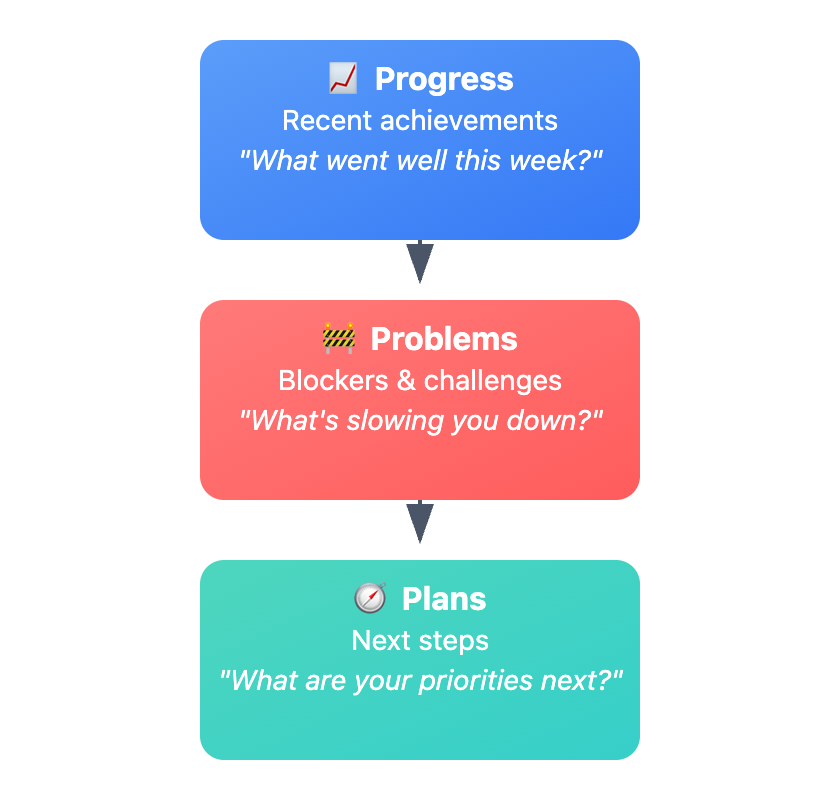Keeping a clear view of project progress in your 1:1s is a cornerstone of effective leadership—especially for finance managers, where accuracy, timeliness, and cross-functional coordination are critical. In this unit, you’ll discover how to structure your check-ins for clarity, spot issues before they escalate, and ensure every conversation ends with actionable alignment. Mastering these skills will help you keep projects on track, ensure compliance with deadlines, and build trust with your team.
Opening your project updates with recent wins or progress sets a positive, energetic tone. For finance managers, this could mean celebrating the early completion of a monthly close, successful audit preparation, or timely delivery of a budget forecast. Asking something like "What’s gone well since our last check-in?" encourages your team member to share successes and helps you quickly identify what’s working. For example, if someone says, "We finished the variance analysis two days early," you can acknowledge the achievement and use it as a springboard for deeper discussion. This approach not only boosts morale but also makes it easier to recognize patterns of progress, even when the work is tough.
After celebrating progress, gently shift the conversation to uncover any obstacles. In finance, blockers often involve data dependencies, delayed approvals, or shifting regulatory requirements. Open-ended questions such as "Is there anything slowing you down or getting in the way?" or "What’s been harder than expected?" invite honest discussion. If you sense hesitation, try a prompt like "Sometimes cross-team dependencies can cause delays—have you run into anything like that?" The goal is to surface blockers early so you can support problem-solving together, rather than being surprised by last-minute setbacks.
A practical technique for finance managers is the “3P Framework”: Progress, Problems, Plans. :

Always close your check-in by aligning on clear, actionable next steps. Summarize what you’ve discussed and confirm responsibilities. For instance: "So, you’ll follow up with the data team by Friday, and I’ll check in with legal about the contract review. Let’s touch base on both in our next 1:1." This habit ensures accountability, keeps momentum high, and gives your team confidence that you’re both working toward shared goals.
Here’s a realistic example of how to structure a project check-in using these techniques:
- Jake: Hey Jessica, let’s start with what’s gone well since our last check-in. Any wins to share?
- Jessica: Yes, actually! I wrapped up the variance analysis two days ahead of schedule.
- Jake: That’s fantastic—great job getting ahead. Was there anything that helped you move faster this time?
- Jessica: I blocked out a couple of hours each morning just for that, which really helped me focus.
- Jake: Love to hear that. Is there anything slowing you down on the next phase, or anything you’re concerned about?
- Jessica: I’m waiting on some data from the sales team, and it’s taking longer than I expected.
